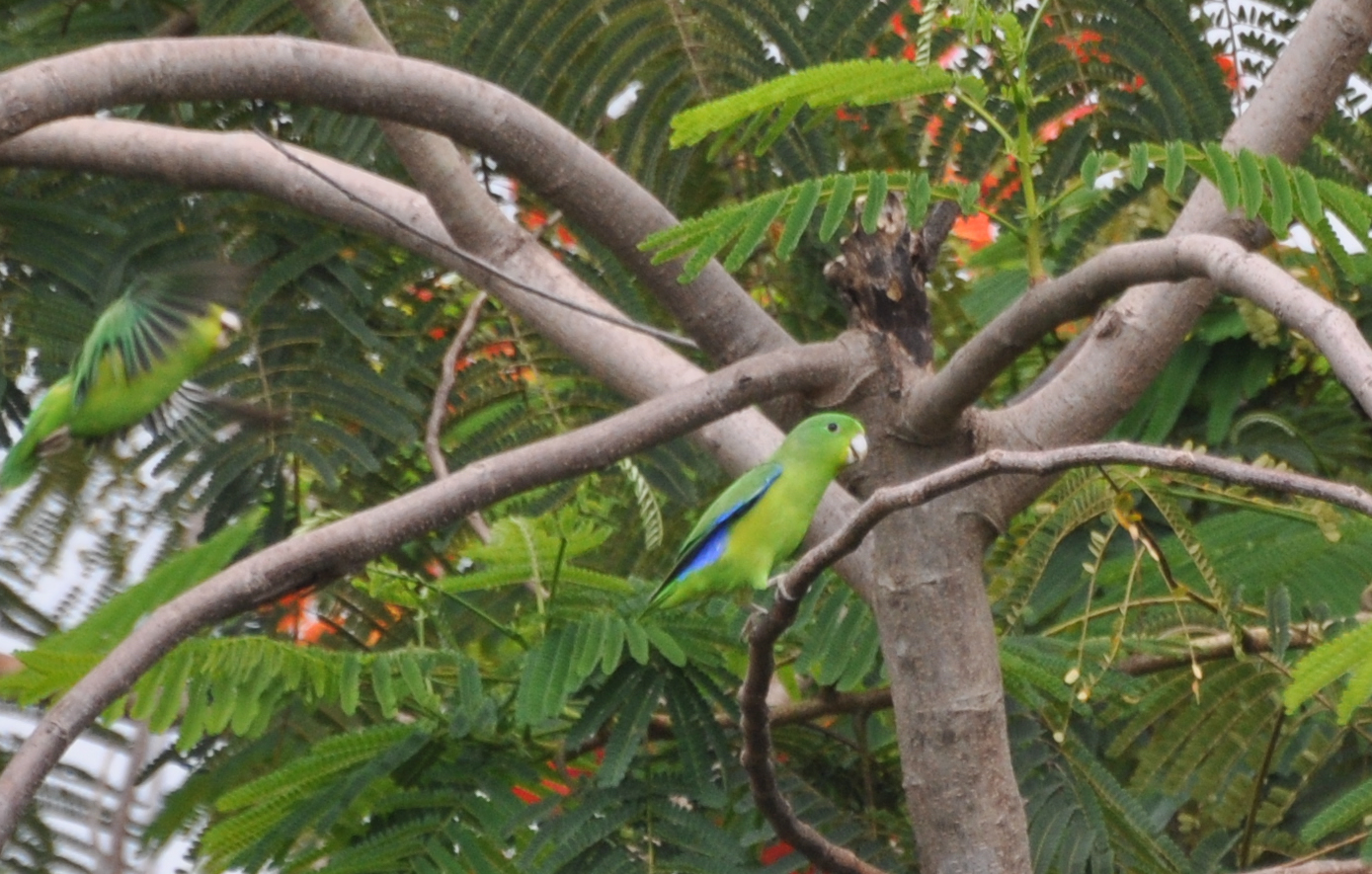Parrot News
24 September
Resource allocation varies with parental sex and brood size in
the asynchronously hatching green-rumped parrotlet (Forpus passerinus)
By: Amber E. Budden & Steven R. Beissinger
In: Behav Ecol Sociobiol (2009) 63:637–647
Abstract: When eggs hatch asynchronously, offspring arising from last-hatched eggs often exhibit a competitive disadvantage compared with their older, larger nestmates. Strong sibling competition might result in a pattern of resource allocation favoring larger nestlings, but active food allocation towards smaller offspring may compensate for the negative effects of asynchronous hatching. The authors examined patterns of resource allocation by greenrumped parrotlet parents to small and large broods under control and food-supplemented conditions. There was no difference between parents and among brood sizes in visit rate or number of feeds delivered, although females spent marginally more time in the nest than males. Both male and female parents preferentially fed offspring that had a higher begging effort than the remainder of the brood. Mean begging levels did not differ between small and large broods, but smaller offspring begged more than their older nestmates in large broods. Male parents fed small offspring less often in both brood sizes. Female parents fed offspring evenly in small broods, while in large broods they fed smaller offspring more frequently, with the exception of the very last hatched individual. These data suggest male parrotlets exhibit a feeding preference for larger offspring—possibly arising from the outcome of sibling competition—but that females practice active food allocation, particularly in larger brood sizes. These differential patterns of resource allocation between the sexes are consistent with other studies of parrots and may reflect some level of female compensation for the limitations imposed on smaller offspring by hatching asynchrony.

Blue-winged parrotlet, Rondonopolis Brazil, A.Lee